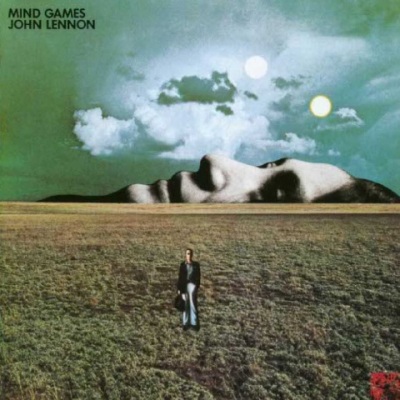
Mind Games
这张专辑是列侬solo生涯的一个转折点。从此,他削减了对音乐的艺术性探索,整体走向逐渐靠向当时的主流音乐形态。不少人批评他的“不思进取”,虽然这只是一家之言,但1973年到1975年的间的几张专辑确实未能带来太多的惊喜。在我看来,尽管专辑整体并不出彩,但第四首作品《One Day》,仍然是难得的经典之作。列侬再次展现了其妖邪诡异的唱腔,让人回想起披头士时期的《I'm The Walrus》。 《Mind Games》这首曲目作为列侬的标志性作品之一,原名为《Make Love Not War》,当年被认为是《Cold Turkey》的续章。这首作品曲风明快,琅琅上口,被后人翻唱至今。值得一提的是,专辑的第六首曲目名中,出现了一个前所未有的新单词“Nutopian”,在歌词册的内页部分,亦有一段关于此的宣言。这个单词的定义仍然为一种精神上的国度,类似于“Utopia”(乌托邦)。 有趣的是,《Nutopian International Anthem》作为“Nutopia”的国歌,只有短短几秒钟时间。 by Stephen Thomas Erlewine After the hostile reaction to the politically charged Sometime in New York City, John Lennon moved away from explicit protest songs and returned to introspective songwriting with Mind Games. Lennon didn't leave politics behind -- he just tempered his opinions with humor on songs like "Bring on the Lucie (Freda Peeple)," which happened to undercut the intention of the song. It also indicated the confusion that lies at the heart of the album. Lennon doesn't know which way to go, so he tries everything. There are lovely ballads like "Out of the Blue" and "One Day (At a Time)," forced, ham-fisted rockers like "Meat City" and "Tight As," sweeping Spectoresque pop on "Mind Games," and many mid-tempo, indistinguishable pop/rockers. While the best numbers are among Lennon's finest, there's only a handful of them, and the remainder of the record is simply pleasant. But compared to Sometime in New York City, as well as the subsequent Walls and Bridges, Mind Games sounded like a return to form.
